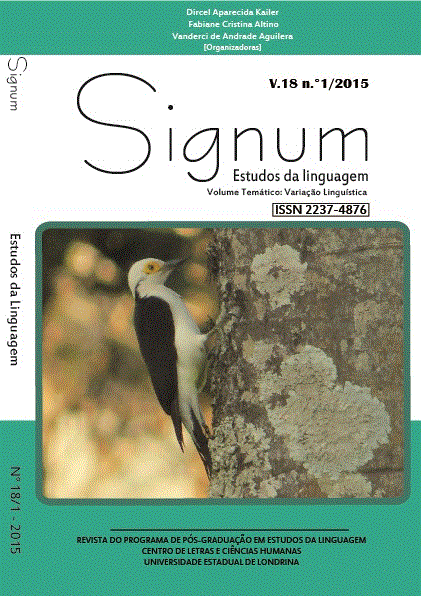Sex/gender variable and the use of tu/você in southern Brazil
DOI:
https://doi.org/10.5433/2237-4876.2015v18n1p182Keywords:
Sociolinguística, Tu/você, Sexo/gênero.Abstract
The present study aimed to draw a comparative analysis of the influence of the sex/gender variable in the use of pronouns tu/você in five cities (Florianopolis, Blumenau, Lages, Chapeco and Concordia) in the State of Santa Catarina and four cities (Porto Alegre, Panambi, San Borja and Flores da Cunha) in the State of Rio Grande do Sul. Data about Concordia were resumed from Franceschini (2011); data about the other cities were resumed from Loregian-Penkal (2004). Surveys were conducted considering a sample of 24 respondents from each city, divided by sex/gender, two age groups and three education levels. The VARBRUL (PINTZUK, 1988) program package was used for statistical data analysis. Results show, in general, women as supporters of the canonical pronoun tu; however, the correlation between speakers’ sex/gender, age and schooling pointed the younger and middle school women toward greater use of innovative pronoun você as well as men in the sample.Downloads
Download data is not yet available.
Downloads
Published
2015-01-11
How to Cite
FRANCESCHINI, Lucelene Teresinha; LOREGIAN-PENKAL, Loremi. Sex/gender variable and the use of tu/você in southern Brazil. Signum: Estudos da Linguagem, [S. l.], v. 18, n. 1, p. 182–205, 2015. DOI: 10.5433/2237-4876.2015v18n1p182. Disponível em: https://ojs.uel.br/revistas/uel/index.php/signum/article/view/20205. Acesso em: 4 jan. 2025.
Issue
Section
Article
















